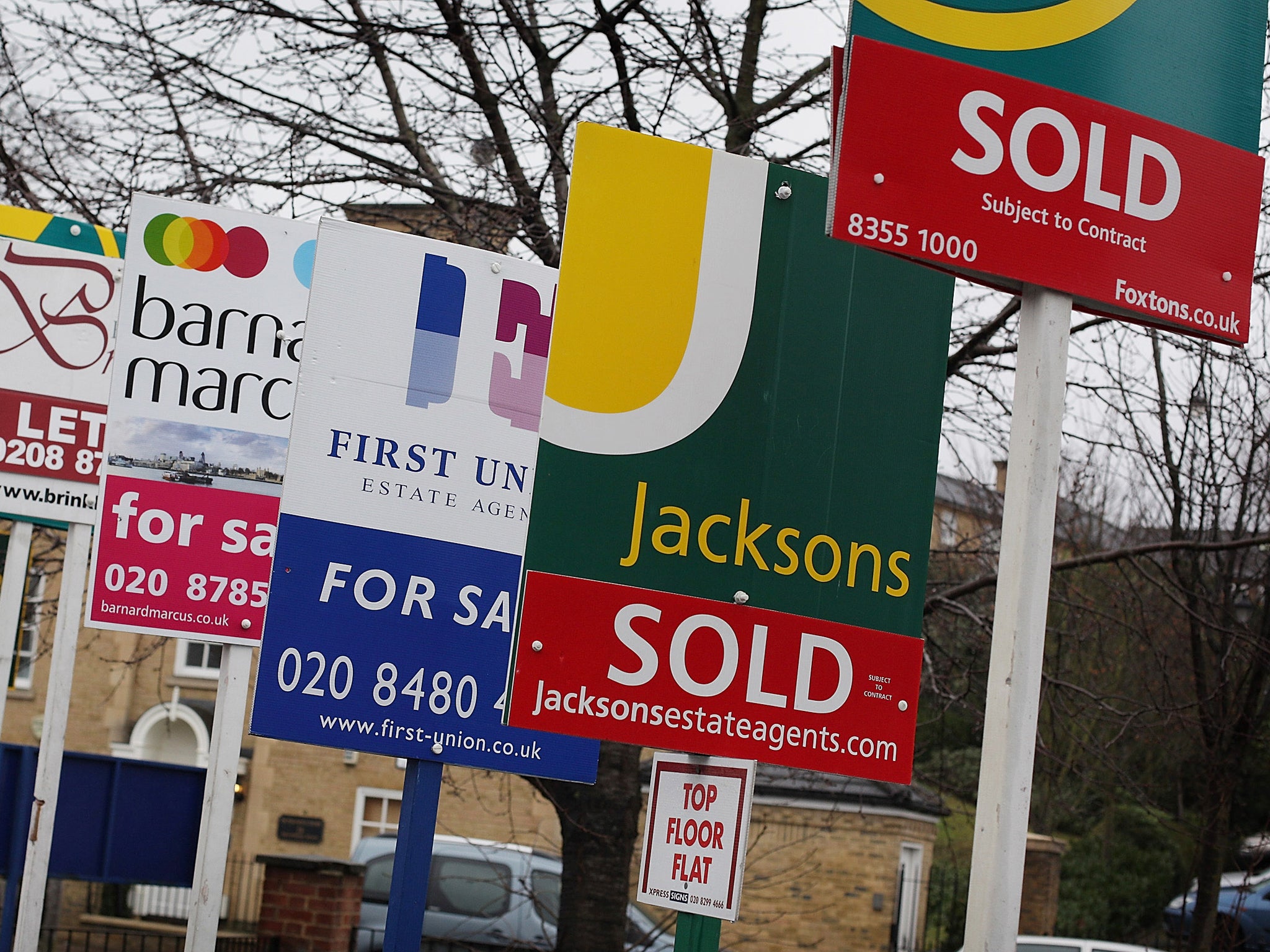High property prices may damage the capital but so could rash solutions
Outlook: London risks becoming dull as well as uncompetitive, which will have economic consequences of its own

John Cridland has once again sought to stir the housing pot with a warning of grave consequences for London’s economy if action is not taken to address the absurdity of a house price boom at a time when incomes are still little better than static, if not falling.
The director general of the CBI, writing for the Evening Standard, pointed out that Britain is building only a fraction of the new homes required to keep up with demand. He warned that the increasing mismatch between strangled supply and booming demand will ultimately damage the capital’s economic competitiveness. By extension that means the rest of the UK too, given the capital’s status as the country’s economic driver.
But it goes beyond that. London increasingly risks taking on some of the grey conformity of the lightly taxed but stale places that well-heeled residents sometimes flee to before returning despite the allegedly heavy burden that Britain imposes upon them. Their return, and their investment in London property, are among the factors that are chasing away many of the people who have made it such a vibrant, diverse, cosmopolitan mish-mash, which so attracts visitors.
The benefits cap, sky-high private sector rental costs and a desperate lack of affordable social housing are combining to bring about an insidious social engineering. London risks becoming dull as well as uncompetitive, which will have economic consequences of its own. Think about the impact on tourism, or on the leisure sector.
It’s when it comes to Mr Cridland’s proposed medicines for this malady that we should have a care. Calling for politicians to take bold measures as he does can be hazardous. It encourages them to throw reason out of the window in favour of dreams about favourable headlines and figures that can trotted out in the House of Commons or splattered across leaflets at election time.
All too frequently bold measures go hand-in-glove with unintended consequences. Far better would be to rely on intelligent measures.
This doesn’t necessarily rule out the creation of new garden cities, as Mr Cridland suggests, or the building of new homes generally. But there is a need to look beyond London simply sprawling across half of the South-east to solve this problem. Unpalatable though it may be, we need to consider more building up as well as out. Greenfield sites should be considered only when brownfield sites have been exhausted. The taxation system ought to penalise those who own some of the disturbingly high number of empty properties within the M25.
Mr Cridland is still right to raise the issue. Even though recent figures suggest that house prices have started to moderate, perhaps thanks to recent measures such as restricting the availability of mortgages, the genie won’t stay in the bottle forever.
At the same time, perhaps the market pausing for breath should cause policymakers to do the same. Action is certainly needed, but burying common sense in a pool of cement to solve a problem may just leave us with some equally nasty new ones.
Mitchells & Butlers tucks into some good news
Mitchells & Butlers is in the news for the right reasons. That’s something we should perhaps raise one of the pub operator’s glasses to, although it is plates full of food that are the mainstays of its business menu these days.
Hence the tasty £266m bar tab for the majority of the privately owned Orchid Group.
The deal has been in the offing for a while now, and the company has done a decent job of selling it to the investor and analyst community, hence a rather positive reaction to the deal announcement.
Having sold 333 wet (booze) led pubs in 2010, M&B had cash on its balance sheet with which to fund the transaction, although it has taken out a £150m borrowing facility as well.
The next step is justifying the price that has been paid by integrating the Orchid pubs with the company’s existing estate. If your local is among those premises it may soon be trading under the Harvester, Toby or one of the other brands in the company’s crowded stable.
Stable is, however, also a decent description for the situation the company has found itself in. After a revolving door at the top with a bewildering array of both chairmen and chief executives stopping off to pick up a few quid before departing, things seem to have settled down a bit. Perhaps the company’s coterie of big-gun investors, which include the likes of the billionaire currency trader Joe Lewis and the horse-racing magnate John Magnier, have realised the benefits of allowing their investment to plot a steady course for a while.
Who knows, now the deal is done, it may even be able to return to paying dividends.
It had better be quick about it. The shares have been drifting a bit and the aforementioned investors aren’t known for their limitless patience. Mr Lewis has already tried to take the company out once. It’s always had a rather enviable portfolio of properties, one that looks even better now. So even if Mr Lewis is done with his takeover ambitions, there are still plenty of potential suitors out there.
M&B is clearly benefiting from running on the flat.
But it will need to mirror the performance of Mr Magnier’s equine interests that will line up this week at Royal Ascot to keep the wolves at bay.
Subscribe to Independent Premium to bookmark this article
Want to bookmark your favourite articles and stories to read or reference later? Start your Independent Premium subscription today.

Join our commenting forum
Join thought-provoking conversations, follow other Independent readers and see their replies